Abe offers no apology over wartime past in US Congress speech
Updated: 2015-04-30 08:51
(Xinhua)
|
||||||||
Ahead of Abe's visit, Koreans had lobbied for an apology, in particular for the issue of some 200,000 women forced into sex slaves for Japanese military during the war now referred to as " comfort women."
Also before Abe's visit, Congressman Michael Honda sent a letter signed by 25 House of Representatives members to the Japanese ambassador urging the premier to "lay the foundation for healing and humble reconciliation by addressing the historical issues."
The Obama administration had also called on Japan to handle its wartime history in a way that promotes "healing and reconciliation. "
Abe told U.S. lawmakers that he visited the World War II memorial in Washington D.C. before addressing them.
"With deep repentance in my heart, I stood there in silent prayers for some time," he claimed.
He did not refer to the issue of "comfort women," saying only that "Armed conflicts have always made women suffer the most. In our age, we must realize the kind of world where finally women are free from human-rights abuses."
Confronted with a question on Tuesday at the White House about whether he would make an apology for Japan's wartime history, including the "comfort women" issue, Abe simply echoed the words he used a year earlier.
"I am deeply pained to think about the comfort women who experienced immeasurable pain and suffering as a result of victimization due to human trafficking," he told a joint press conference with President Barack Obama.
His reference to human trafficking this time was implying Japanese military's no-sin in the matter.
Congressman Honda used "shocking" and "shameful" to describe his disgust toward Abe's continuing evasion of his government's responsibility.
"Today's refusal to squarely face history is an insult to the spirit of the 200,000 girls and women from the Asia-Pacific who suffered during World War II," he said. "This is unacceptable."
Congresswoman Judy Chu echoed the sentiment, accusing Abe of ignoring "Japan's responsibility for this particularly troubling and painful chapter."
"The prime minister said that Japan's eyes are always on the road ahead, but without responsibility and remorse, it is impossible to move forward," she added.
- Tourists swarm Mount Taishan even before holiday
- Hospitals checked for possible bribes, kickbacks, misconduct
- 2,000 Chinese tourists return from Nepal
- Watchdog says Sinopec chief faces investigation
- Red Cross Society of China delivers relief supplies to Nepal
- 4,000 Chinese stranded in quake-hit Nepal
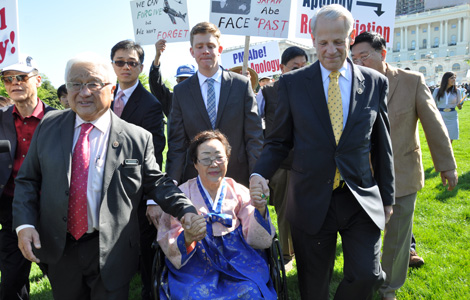
 'Comfort women' survivor attends protest of Jpapan PM
'Comfort women' survivor attends protest of Jpapan PM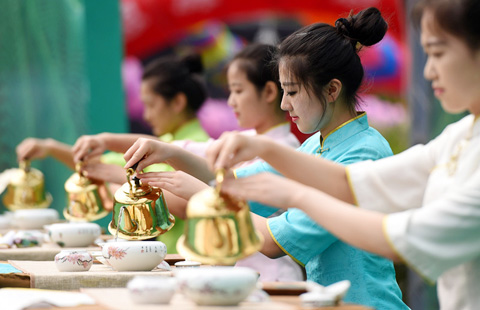
 Ten photos you don't wanna miss – April 29
Ten photos you don't wanna miss – April 29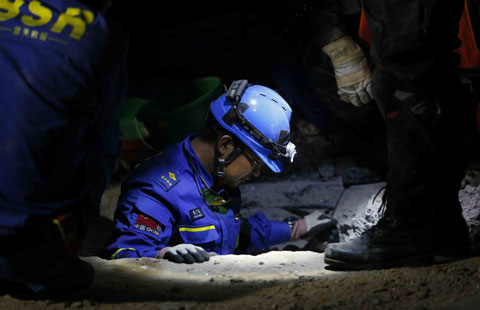
 China's rescue team searches for survivors in Nepal
China's rescue team searches for survivors in Nepal
 Police descend on Baltimore to enforce curfew after riots
Police descend on Baltimore to enforce curfew after riots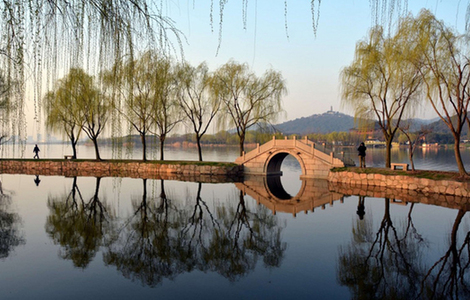
 Top 10 Chinese cities with innovative flair
Top 10 Chinese cities with innovative flair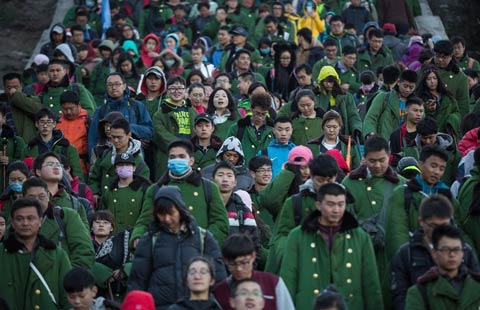
 Tourists swarm Mount Taishan even before holiday
Tourists swarm Mount Taishan even before holiday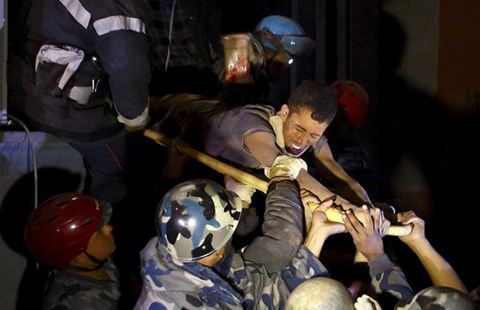
 Man pulled alive from rubble 82 hours after quake
Man pulled alive from rubble 82 hours after quake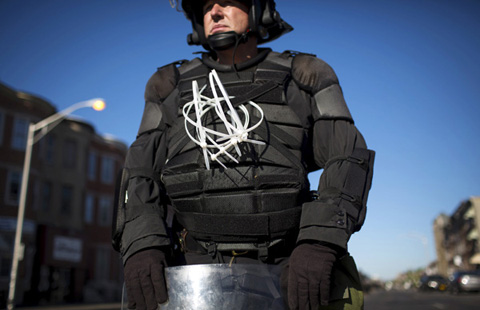
 Baltimore erupts in riots after funeral of man who died in police custody
Baltimore erupts in riots after funeral of man who died in police custody
Most Viewed
Editor's Picks

|

|

|

|

|

|
Today's Top News
US rapped for stance on Japan
Obama, Abe talk much about China
Japan PM protested at US Capitol, San Francisco
Chinese students caught in riot scene
China hits out as Abe visits the US
Riot-hit Baltimore, an American city divided by income and opportunity
Record shattered as Furious 7 sets hot pace
'Rent-a-Foreigner' business by China's real estate developers
US Weekly

|

|






